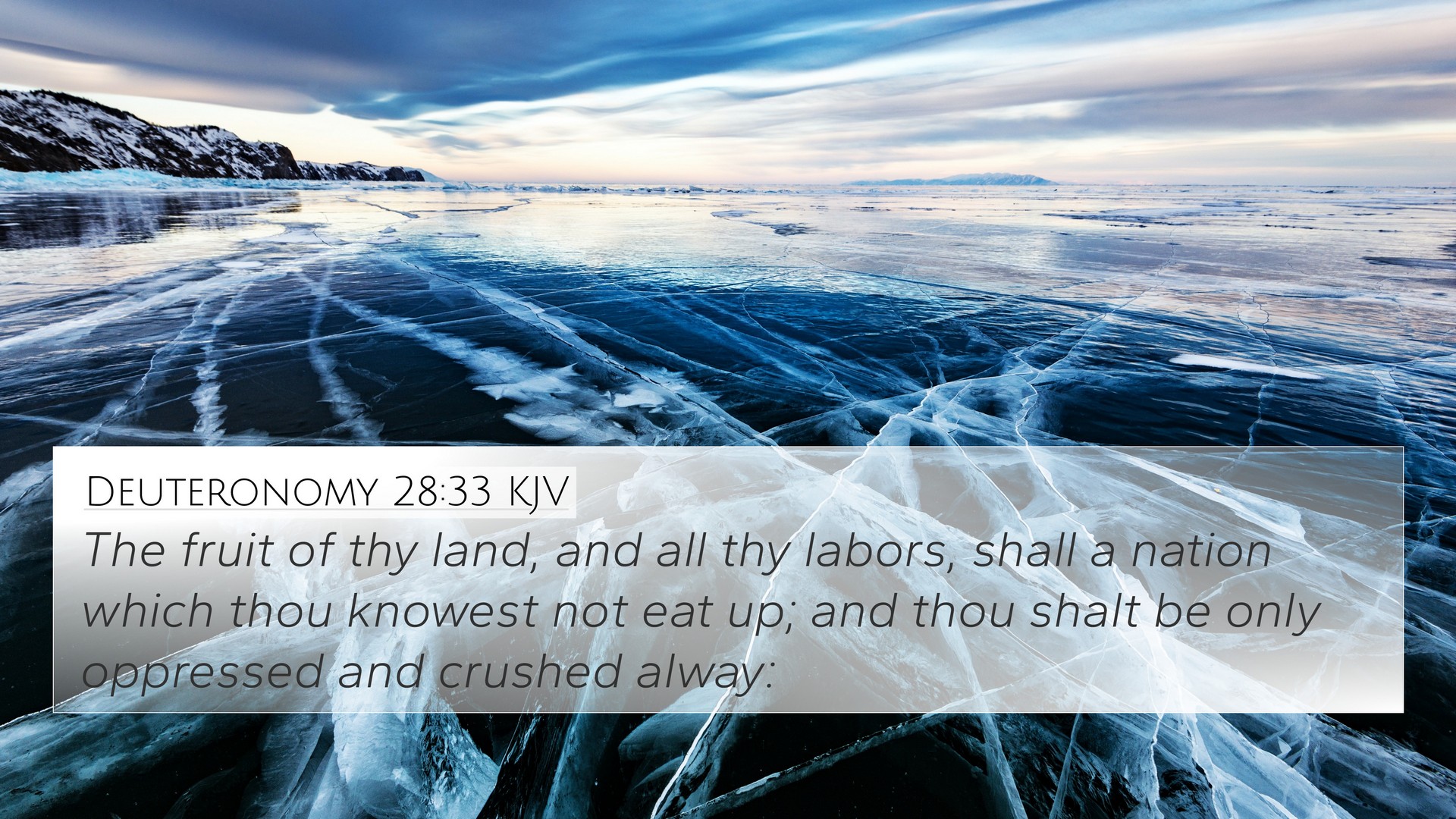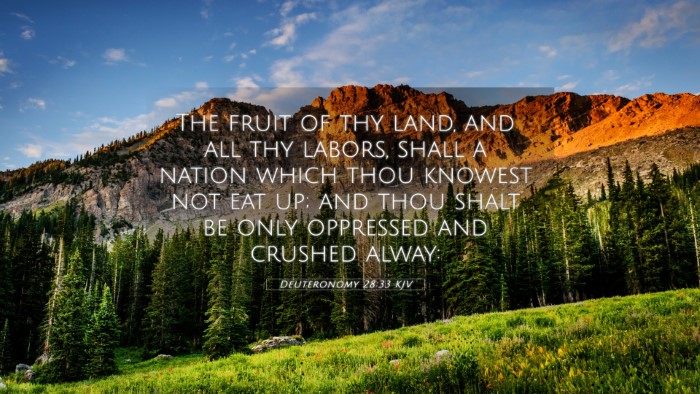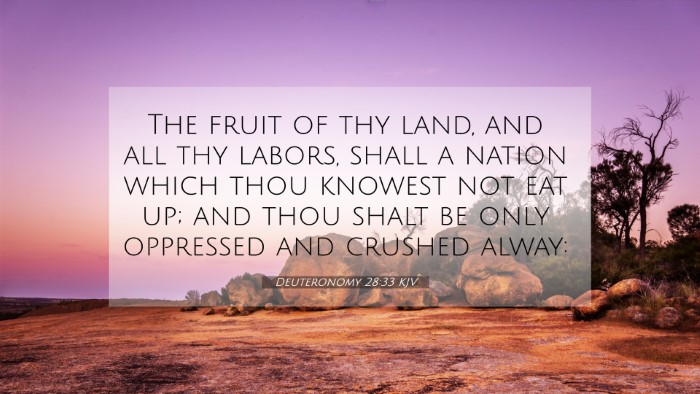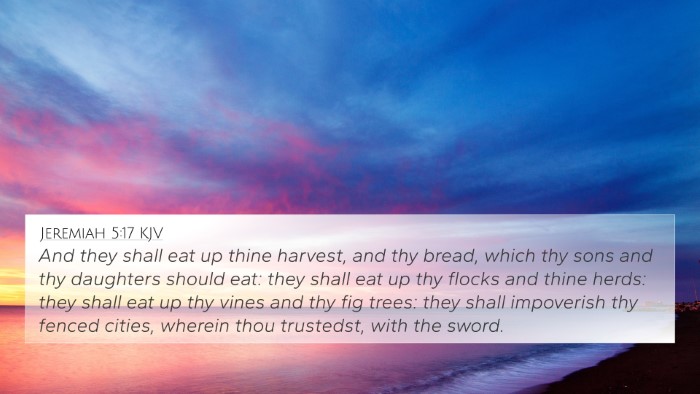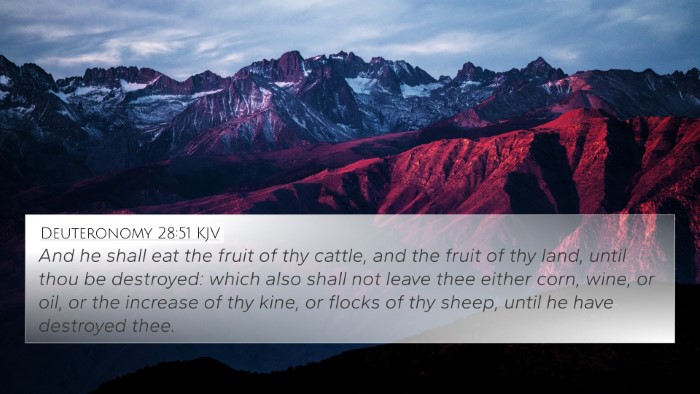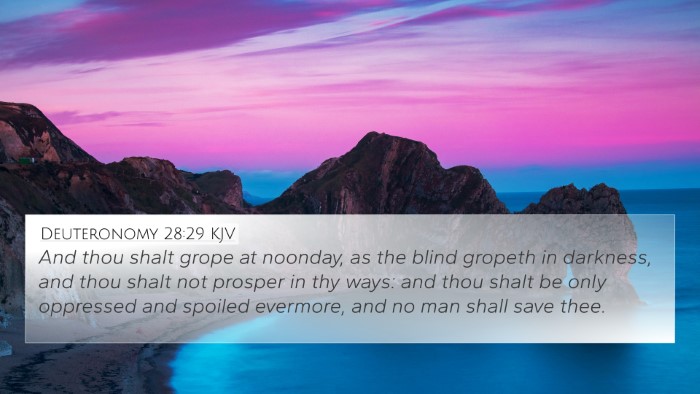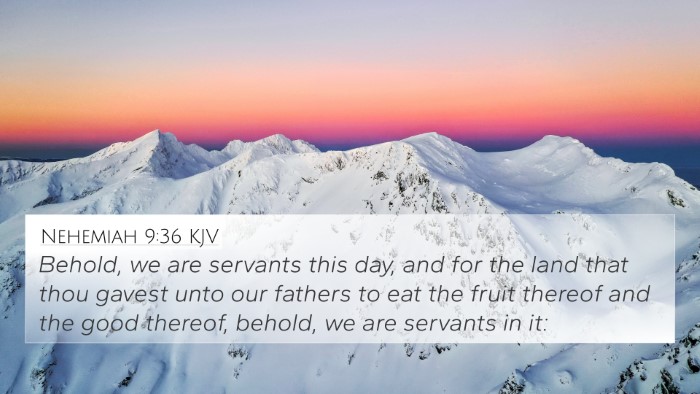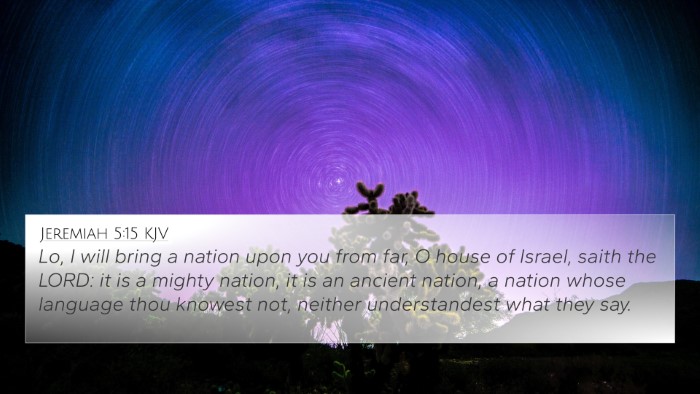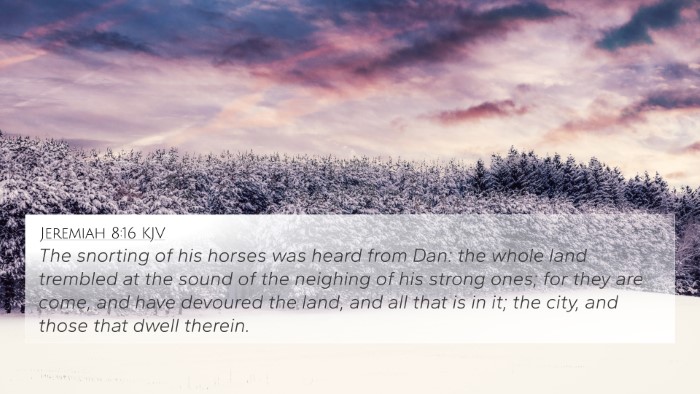Understanding Deuteronomy 28:33
Deuteronomy 28:33 states: "The fruit of thy land, and all thy labours, shall a nation which thou knowest not eat up; and thou shalt be only oppressed and crushed always." This verse is part of a larger section in Deuteronomy that outlines the blessings for obedience and the curses for disobedience as the Israelites prepare to enter the Promised Land.
Contextual Overview
This verse falls under the blessings and curses Moses outlines in Deuteronomy 28. The preceding verses highlight the abundant blessings that come from obedience to God, while this verse represents a dire consequence of turning away from His commandments.
Summary of Insights from Commentaries
-
Matthew Henry:
Henry explains that the "nation which thou knowest not" refers to foreign invaders who will come and consume the land's produce, emphasizing the loss and oppression resulting from unfaithfulness to God. This highlights the overall theme of dependence on God for sustenance and fortune.
-
Albert Barnes:
Barnes elaborates on the idea that the people will experience a reversal of fortune due to their abandonment of God. The fruit of their labor will be enjoyed by others, signifying a loss of autonomy and prosperity, reinforcing the need for fidelity to God's word.
-
Adam Clarke:
Clarke brings attention to the societal implications of such a curse. He notes how oppressive forces will subdue Israel, transforming a once thriving nation into one that suffers under the yoke of foreign domination. This serves as a warning that disobedience leads to national calamity.
Thematic Connections in the Bible
Deuteronomy 28:33 serves as a pivotal reminder of the consequences of disobedience. It resonates with several themes found throughout the Bible. Below are some related scriptures that connect with the themes of oppression, the fruit of labor, and the covenant relationship with God:
- Leviticus 26:16: "I also will do this unto you; I will even appoint over you terror, consumption, and the burning ague..." - This verse outlines the penalties for disobedience, emphasizing the theme of divine retribution.
- Isaiah 65:22: "They shall not build, and another inhabit; they shall not plant, and another eat..." - A direct parallel that indicates the loss of the fruit of one's labor due to unjust circumstances.
- Jeremiah 5:17: "...they shall eat up your harvest, and your bread, which your sons and your daughters should eat: they shall eat up your flocks and your herds..." - This verse expresses similar themes of loss and devastation due to external oppressors.
- Hosea 8:7: "For they have sown the wind, and they shall reap the whirlwind..." - This connects to the idea that disobedience results in dire consequences, resonating with the sentiment in Deuteronomy 28:33.
- Galatians 6:7: "Be not deceived; God is not mocked: for whatsoever a man soweth, that shall he also reap." - This New Testament perspective reinforces the principle of reaping what one sows, both in blessings and curses.
- Revelation 3:17-19: "Because thou sayest, I am rich, and increased with goods, and have need of nothing; and knowest not that thou art wretched, and miserable, and poor, and blind, and naked..." - This warns against complacency and the false security that may come from material success, aligning with the cautionary note in Deuteronomy.
- Proverbs 10:22: "The blessing of the LORD, it maketh rich, and he addeth no sorrow with it." - This celebrates the joy that comes from divine favor, contrasting the sorrow brought on by disobedience as seen in Deuteronomy.
Cross-Referencing Biblical Texts
For those engaging in cross-referencing Bible study, the insights found in Deuteronomy 28:33 provide a wealth of material to analyze the connections between various verses that speak on themes of faithfulness, labor, punishment, and restoration. Tools for Bible cross-referencing, such as a bible concordance or a bible cross-reference guide, are advantageous in exploring these intricate relationships.
Identifying the Connections
Understanding the connections between Bible verses enriches one's study and application of Scripture. Identifying connections between Old and New Testament texts can reveal profound truths about God’s character and His dealings with humanity. The verses shared above serve as prime examples of how one can embark on a comparative study to draw parallels and deepen their understanding of scripture.
Conclusion
In summary, Deuteronomy 28:33 acts as a sobering reminder of the consequences that arise from turning away from God and His commandments. By observing the thematic connections and using cross-referencing Biblical texts, believers can gain a richer understanding of their faith and the ways in which scripture interrelates. As you explore these resources and verses, consider how they apply to your life and what lessons can be learned about obedience and reliance on God.
